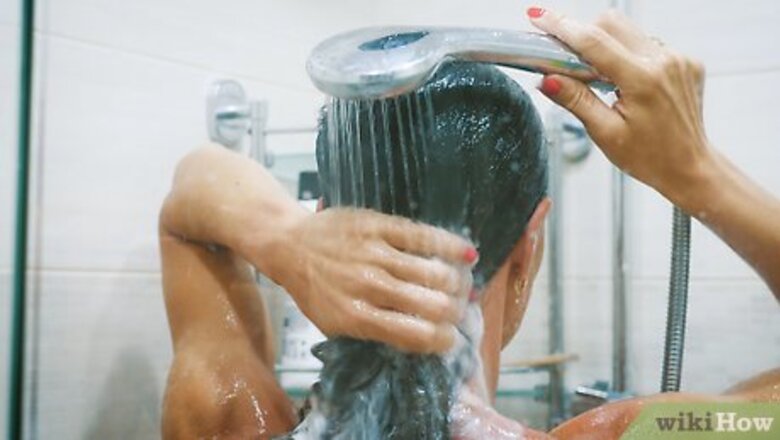
views
Starting a New Routine
Wash your hair less often. Now that you aren't putting sulfates and silicones in your hair, you don't need to wash it every day. In fact, washing your hair that often can really dry it out, increasing volume and frizz. To keep your hair manageable and healthy, wash it two or three times a week.
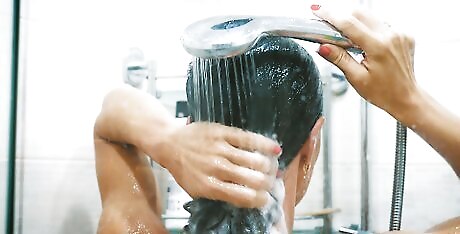
Wash your hair with cold water. Have you been washing your hair with hot water for years and years? High temperatures can really do a number on hair that's already rough and dry; the hot water causes the hair shaft to get frayed. Instead, go as cold as you can stand. When your hair is dry, it'll look sleek and shiny. If you hate taking cold showers (who doesn't) try washing your hair separately, in the sink. That way you can use ice-cold water without getting chilled.
Dry your hair with care. Here's the routine you want to avoid: roughly toweling your hair, violently brushing out tangles, then blasting it with the hair dryer. Hair that is already dry does not respond well to this rough treatment. Instead, use the following routine to dry your hair: Pat it dry with a soft towel. Don't wring it out or twist it up in the towel; gently squeeze out the excess water, then pat it dry. Apply leave-in conditioner or anti-frizz serum. Make sure it's free of silicones. Run some through your hair with your fingers while it's still damp, and use a wide-toothed comb to gently work out any tangles. Let your hair finish air drying. Put away the hair dryer and let it dry the natural way. It'll take longer, but after a few weeks your hair will regain its natural health and shine.
Getting Instant Results
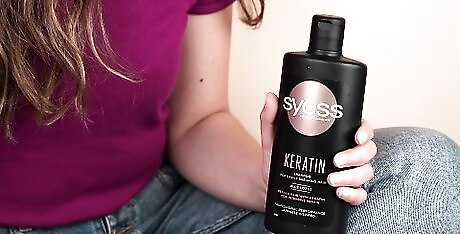
Use sulfate-free shampoo. You may have a collection of shampoos that are meant to tame frizz, define curls, and smooth waves. What they probably all have in common is a few chemicals that actually make dry, rough hair worse: sulfates. Buy shampoo that is completely free of this chemical. Commercial shampoos are made with sulfates because they act as an effective cleanser. They strip the hair of its natural oils to give it that "squeaky clean" quality. The problem is they make hair too clean, and it damages the hair. In fact, the same chemicals are used in dishwashing and laundry detergents. Health food stores and natural beauty product stores sell shampoos without sulfates. Look for a bottle labeled "sulfate-free" to be extra sure it doesn't contain the chemical. Some people with curly hair choose to forego using shampoo entirely. They find that their dry hair doesn't need to have its natural oils washed away, and water alone does the trick for washing out dirt.
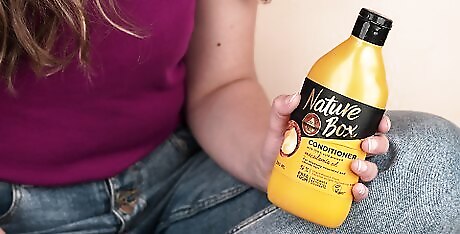
Buy silicone-free conditioner and styling products. Since sulfates wash the oils away from out hair, conditioners resupply moisture and shine by adding silicones to the mix. The problem is that silicones build up in the hair over time and cause it to start looking dry and dull. Buy a new conditioner that doesn't contain silicones; you may see results the first time you use it. Hair balms, creams, gels, and other products also often contain silicones. Examine all of your products and toss or donate the ones that have ingredients that could be harmful to your hair.
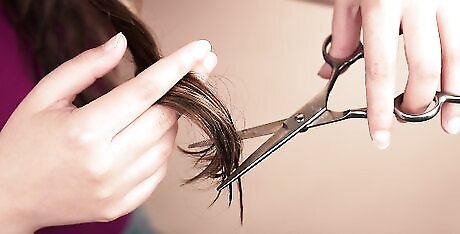
Get a trim. Trimming away the split ends and other damaged sections of hair can go a long way toward making it look and feel healthy again. Get rid of the damage caused by your old shampoo and conditioner products. It's time to start fresh with a new routine.
Maintaining Your Hair Health
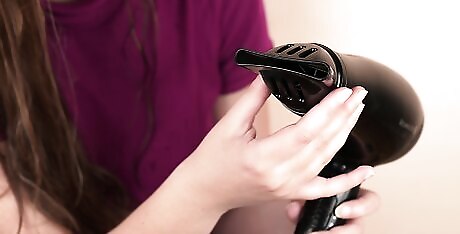
Avoid using heat styling tools. Blow drying, flat ironing and curling your hair every day, or even a few times a week, makes for a lot of long-term damage. Try to adopt a styling routine that makes the most of your air-dried hair. When you do want to dry your hair, choose a cooler setting on the hair dryer and use a diffuser. If you want to curl your hair, try curling it without heat.
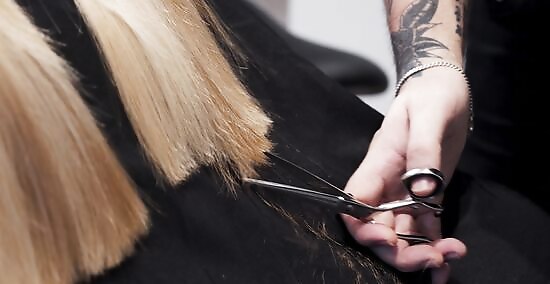
Get regular trims. Getting your hair trimmed and shaped every few months will keep it looking fresh and healthy. Just make sure your stylist knows not to use shampoo and conditioner with sulfates or silicones, and ask her to use a cooler hair dryer setting and employ the diffuser when you're getting your hair styled.

Eat nutrients that promote healthy hair. If your hair is consistently dull and rough, you may not be getting the nutrients you need to keep it healthy. Incorporate more of the following foods into your diet: Fish, avocados, and nuts that contain omega-3 fatty acids. These are essential to hair and nail health. Fruits and vegetables with vitamin E and A, such as spinach, kale, carrots, and sweet potatoes.
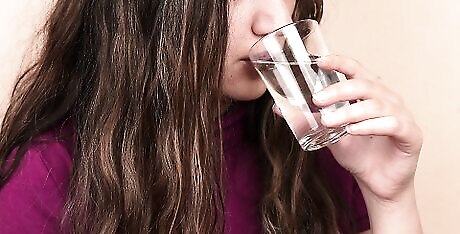
Drink plenty of water. Dehydration is another cause of dull, dry hair. Drink at least 8 glasses of water a day to restore your hair's shine and vibrancy.

















Comments
0 comment